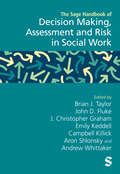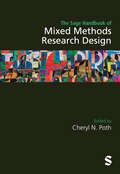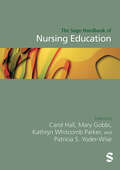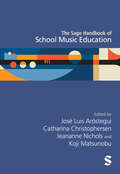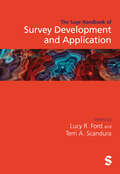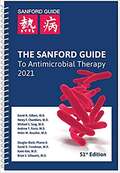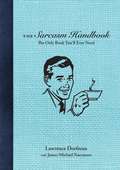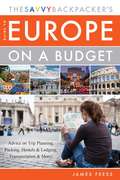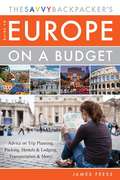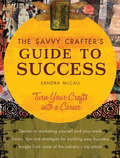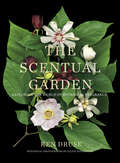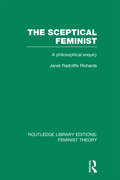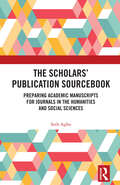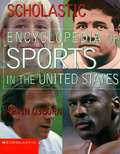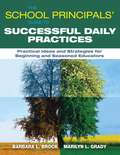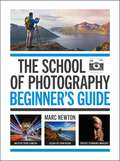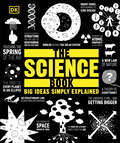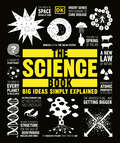- Table View
- List View
The Sage Handbook of Decision Making, Assessment and Risk in Social Work
by Andrew Whittaker Brian J. Taylor Campbell Killick John D. Fluke Aron Shlonsky J. Christopher Graham Emily KeddellThe SAGE Handbook on Decision Making, Assessment and Risk in Social Work provides a comprehensive overview of key strands of research and theoretical concepts in this increasingly important field. With 49 chapters and four section summaries, this Handbook describes the ‘state of the art’; discuss key debates and issues; and gives pointers on future directions for practice, research, teaching, management of services, and development of theoretical understandings. A key aim of this Handbook is to support the development of sound, applied knowledge and values to underpin reasoned professional judgement and decision making by social workers in practice and those in management and regulatory roles. With contributions from a global interdisciplinary body of leading and emerging scholars from a wide variety of roles, this handbook has been designed to be internationally generalisable and applicable to all major areas of social work. This Handbook provides a field-defining account of decision making, assessment and risk in social work which is unrivalled for its diversity and strength of coverage, and will be of value to social work researchers, teachers and practitioners, as well as to those in allied fields such as health care. Section 1: Professional Judgement Section 2: Assessment, Risk and Decision Processes Section 3: Assessment Tools and Approaches Section 4: Developing and Managing Practice Section 5: Concluding Section / Afterword
The Sage Handbook of Decision Making, Assessment and Risk in Social Work
by Andrew Whittaker Brian J. Taylor Campbell Killick John D. Fluke Aron Shlonsky J. Christopher Graham Emily KeddellThe SAGE Handbook on Decision Making, Assessment and Risk in Social Work provides a comprehensive overview of key strands of research and theoretical concepts in this increasingly important field. With 49 chapters and four section summaries, this Handbook describes the ‘state of the art’; discuss key debates and issues; and gives pointers on future directions for practice, research, teaching, management of services, and development of theoretical understandings. A key aim of this Handbook is to support the development of sound, applied knowledge and values to underpin reasoned professional judgement and decision making by social workers in practice and those in management and regulatory roles. With contributions from a global interdisciplinary body of leading and emerging scholars from a wide variety of roles, this handbook has been designed to be internationally generalisable and applicable to all major areas of social work. This Handbook provides a field-defining account of decision making, assessment and risk in social work which is unrivalled for its diversity and strength of coverage, and will be of value to social work researchers, teachers and practitioners, as well as to those in allied fields such as health care. Section 1: Professional Judgement Section 2: Assessment, Risk and Decision Processes Section 3: Assessment Tools and Approaches Section 4: Developing and Managing Practice Section 5: Concluding Section / Afterword
The Sage Handbook of Mixed Methods Research Design
by Cheryl N. PothWith contributions from over 80 of the biggest names and rising stars of the field, this Handbook is an essential resource for anyone interested in the contemporary, emerging, and evolving practice of mixed methods research and scholarship. Exploring new and novel applications of existing mixed methods research design practices, the handbook provides comprehensive integration guidance while showcasing how design innovations inspire and contribute to investigating previously under-researched social issues and populations. Through its unique focus on design and the diverse contexts in which mixed methods research is being applied, this Handbook prepares researchers for the changing conditions in which they will conduct studies. Newcomers and seasoned mixed methods researchers alike will find this Handbook a go-to source for tools to think and act ‘complexively’ and creatively in research design. Using accessible language and illustrative examples, this Handbook is written for those with various roles and experience in mixed methods research design. The in-depth discussions led by the interdisciplinary group of 11 internationally renowned editorial section leads project our collective thinking of mixed methods research design into the future across the following six sections: Section 1: Inspiring Diversity and Innovation in Mixed Methods Design Section 2: The Craft of Mixed Methods Research Design Section 3: Expanding Mixed Methods Design Approaches Section 4: Designing Innovative Integrations with Technology Section 5: Navigating Research Cultures in Mixed Methods Design Section 6: Exploring Design Possibilities and Challenges for Mixed Methods Research
The Sage Handbook of Mixed Methods Research Design
by Cheryl N. PothWith contributions from over 80 of the biggest names and rising stars of the field, this Handbook is an essential resource for anyone interested in the contemporary, emerging, and evolving practice of mixed methods research and scholarship. Exploring new and novel applications of existing mixed methods research design practices, the handbook provides comprehensive integration guidance while showcasing how design innovations inspire and contribute to investigating previously under-researched social issues and populations. Through its unique focus on design and the diverse contexts in which mixed methods research is being applied, this Handbook prepares researchers for the changing conditions in which they will conduct studies. Newcomers and seasoned mixed methods researchers alike will find this Handbook a go-to source for tools to think and act ‘complexively’ and creatively in research design. Using accessible language and illustrative examples, this Handbook is written for those with various roles and experience in mixed methods research design. The in-depth discussions led by the interdisciplinary group of 11 internationally renowned editorial section leads project our collective thinking of mixed methods research design into the future across the following six sections: Section 1: Inspiring Diversity and Innovation in Mixed Methods Design Section 2: The Craft of Mixed Methods Research Design Section 3: Expanding Mixed Methods Design Approaches Section 4: Designing Innovative Integrations with Technology Section 5: Navigating Research Cultures in Mixed Methods Design Section 6: Exploring Design Possibilities and Challenges for Mixed Methods Research
The Sage Handbook of Nursing Education
by Carol Hall Patricia S. Yoder-Wise Mary Gobbi Kathryn Whitcomb ParkerIn the past several years, a revival of research devoted to nursing education has emerged. This emergence has changed the way many educators engage in their practice of working with learners; and learners have come to expect that they will have a rich learning experience designed to develop new (or enhance prior) knowledge, skills, and attitudes. The SAGE Handbook of Nursing Education provides a detailed map of the current discipline, with a carefully selected team of international contributors offering the latest thinking about education in nursing across key areas. This handbook will be a key resource for academic educators, as well as graduate and postgraduate learners.
The Sage Handbook of Nursing Education
by Carol Hall Patricia S. Yoder-Wise Mary Gobbi Kathryn Whitcomb ParkerIn the past several years, a revival of research devoted to nursing education has emerged. This emergence has changed the way many educators engage in their practice of working with learners; and learners have come to expect that they will have a rich learning experience designed to develop new (or enhance prior) knowledge, skills, and attitudes. The SAGE Handbook of Nursing Education provides a detailed map of the current discipline, with a carefully selected team of international contributors offering the latest thinking about education in nursing across key areas. This handbook will be a key resource for academic educators, as well as graduate and postgraduate learners.
The Sage Handbook of School Music Education
by Catharina Christophersen José Luis Aróstegui Jeananne Nichols Koji MatsunobuThe Sage Handbook of School Music Education stands as an essential guide for navigating the evolving educational landscape in the wake of the 2008 financial crisis and the transformative impact of the COVID-19 pandemic. The handbook addresses philosophical foundations, social justice challenges, the envisioning of a transformative curriculum, and critical issues in music teacher education. Written by a diverse team of leading scholars, this handbook offers a truly global perspective with contributors from Africa, Asia, Australasia, Europe, and North and South America. The handbook engages with the profound interplay of economic, political, and social forces that shape educational policies. Scholars within this collaborative work delve into what it means to educate in a world undergoing significant changes. This entails an exploration of emerging educational approaches, considerations for societal implications, and the interconnectedness of school music education with broader curricular and global contexts. As a cohesive resource, The Sage Handbook of School Music Education not only addresses the challenges faced by educators but also envisions the transformative potential of music education in fostering creativity, inclusivity, and adaptability. This handbook serves as a compass for students, practitioners and scholars in the field, and all those passionate about navigating the complexities of redefining music education for a new era. Part 1: Foundations Part 2: Struggling for Social Justice Through Music Education Part 3: Curriculum Development Part 4: Teacher Education
The Sage Handbook of School Music Education
by Catharina Christophersen José Luis Aróstegui Jeananne Nichols Koji MatsunobuThe Sage Handbook of School Music Education stands as an essential guide for navigating the evolving educational landscape in the wake of the 2008 financial crisis and the transformative impact of the COVID-19 pandemic. The handbook addresses philosophical foundations, social justice challenges, the envisioning of a transformative curriculum, and critical issues in music teacher education. Written by a diverse team of leading scholars, this handbook offers a truly global perspective with contributors from Africa, Asia, Australasia, Europe, and North and South America. The handbook engages with the profound interplay of economic, political, and social forces that shape educational policies. Scholars within this collaborative work delve into what it means to educate in a world undergoing significant changes. This entails an exploration of emerging educational approaches, considerations for societal implications, and the interconnectedness of school music education with broader curricular and global contexts. As a cohesive resource, The Sage Handbook of School Music Education not only addresses the challenges faced by educators but also envisions the transformative potential of music education in fostering creativity, inclusivity, and adaptability. This handbook serves as a compass for students, practitioners and scholars in the field, and all those passionate about navigating the complexities of redefining music education for a new era. Part 1: Foundations Part 2: Struggling for Social Justice Through Music Education Part 3: Curriculum Development Part 4: Teacher Education
The Sage Handbook of Survey Development and Application
by Terri A. Scandura Lucy R. FordThe SAGE Handbook of Survey Development and Application provides a practical resource that researchers can go to for cutting-edge tools to ensure they are employing the best survey research techniques. This handbook not only covers the classic and innovational skills and approaches involved at every step of the survey research process, but also centres itself around applied, how-to guidance to aid readers in best practice. Chapters engage with a broad range of topics including sampling issues, approaches to establishment of measurement equivalence, and the use of online labour pools in survey development. With contributions from a global community of leading and emerging scholars across a wide variety of disciplines, this Handbook is focused on being applicable and accessible across the social sciences. Containing over 120 tables and figures, checklists and tutorial guides, The SAGE Handbook of Survey Development and Application will serve as a one stop resource for survey research. This handbook serves as a touchstone for a variety of fields such as Organizational Behavior, Industrial & Organizational Psychology, Management, Psychology, Educational Research, Marketing, Public Policy, and others. PART 1: Conceptual Issues and Operational Definition PART 2: Research Design Considerations PART 3: Item Development PART 4: Scale Improvement Methods PART 5: Data Collection PART 6: Data Management and Analysis PART 7: Research Production and Dissemination PART 8: Applications
The Sage Handbook of Survey Development and Application
by Terri A. Scandura Lucy R. FordThe SAGE Handbook of Survey Development and Application provides a practical resource that researchers can go to for cutting-edge tools to ensure they are employing the best survey research techniques. This handbook not only covers the classic and innovational skills and approaches involved at every step of the survey research process, but also centres itself around applied, how-to guidance to aid readers in best practice. Chapters engage with a broad range of topics including sampling issues, approaches to establishment of measurement equivalence, and the use of online labour pools in survey development. With contributions from a global community of leading and emerging scholars across a wide variety of disciplines, this Handbook is focused on being applicable and accessible across the social sciences. Containing over 120 tables and figures, checklists and tutorial guides, The SAGE Handbook of Survey Development and Application will serve as a one stop resource for survey research. This handbook serves as a touchstone for a variety of fields such as Organizational Behavior, Industrial & Organizational Psychology, Management, Psychology, Educational Research, Marketing, Public Policy, and others. PART 1: Conceptual Issues and Operational Definition PART 2: Research Design Considerations PART 3: Item Development PART 4: Scale Improvement Methods PART 5: Data Collection PART 6: Data Management and Analysis PART 7: Research Production and Dissemination PART 8: Applications
The Sanford Guide to Antimicrobial Therapy
by David N. Gilbert M. D. Jay P. Sanford Michael S. SaagThis leading clinical is reference on treatment of infectious diseases and anti-infective drug information. Helpful in day-to-day practice and as a component of your organization's antimicrobial stewardship program, the Sanford Guide provides valuable guidance in the age of antibiotic resistance. Popular with physicians, pharmacists, physician assistants, nurse practitioners, and other clinicians, the Sanford Guide to Antimicrobial Therapy provides information that is convenient, concise, and reliable.
The Sanford Guide to Antimicrobial Therapy 2021
by David N. Gilbert M. D. Michael S. Saag Henry F. Chambers Andrew T. Pavia Helen W. BoucherThe 51st edition of the leading clinical reference on treatment of infectious diseases and anti-infective drug information. Helpful in day-to-day practice and as a component of your organization's antimicrobial stewardship program, The Sanford Guide provides valuable guidance in the age of antibiotic resistance. <p><p>Popular with physicians, pharmacists, physician assistants, nurse practitioners, and other clinicians, The Sanford Guide to Antimicrobial Therapy provides information that is convenient, concise, and reliable. <p><p>Coverage includes: Clinical syndromes, pathogens (bacterial, fungal, mycobacterial, parasitic, viral), anti-infective agents, dosing with pediatric and renal adjustments, adverse affects, spectra of activity, pharmacology, drug-drug interactions, and preventative therapy.
The Sarcasm Handbook
by Lawrence Dorfman James Michael NaccaratoFrom the author of the bestselling Snark series comes the premiere guide to satire, sneering, jeering, and mockery in their finest forms. A surviving knight of many a verbal joust, Larry Dorfman has become an expert at backhanded sass and cathartic banter.Featuring life lessons from the master himself, as well as quotes and quips by some of history’s sarcastic greats, The Sarcasm Handbook teaches readers how to deflect stupidity and express their inner dissatisfaction with a keen sensibility, hushing subtlety, and wisecrack wit. Included in these invaluable teachings are chapters on achieving the right tone, sarcastic bastards in history, as well as scenarios depicting some of the greatest moments in sarcasm.So pick up your copy today and start learning the art of disparagement through passive aggressiveness!
The Savvy Backpacker's Guide to Europe on a Budget: Advice on Trip Planning, Packing, Hostels & Lodging, Transportation & More!
by James FeessA comprehensive guide to backpacking through Europe.
The Savvy Backpackers Guide to Europe on a Budget
by James FeessA comprehensive guide to backpacking through Europe.
The Savvy Crafter's Guide to Success: Turn Your Crafts Into A Career
by Sandra MccallTake your crafts out of your workshop - and into the spotlight. Do you dream of making money with your art but feel unsure of how to begin? With The Savvy Crafter's Guide to Success, turning your hobby into a career is easier than you think. Leave the boring business books to the white-collar set! In these pages filled with plenty of artwork for inspiration, renowned rubber-stamp and polymer-clay artist Sandra McCall teaches you everything you need to know about successfully marketing and selling your work. She shares personal insights from some of the industry's top crafters, including Traci Bautista, Claudine Hellmuth, Michael Jacobs, Catherine Moore and Stephanie Olin. With sound advice, valuable do's and don'ts, and plenty of encouragement, you'll learn to: Become a regular contributor to craft publications Start teaching workshops at stores, retreats and craft shows Assert yourself as an "expert" in your field Turn your dreams into reality. Turn your crafts into a career!
The Scentual Garden: Exploring the World of Botanical Fragrance
by Ken DruseA complete illustrated survey of fragrant flowers and plants, from a celebrated gardening expert and an award–winning botanical photographer. Popular garden writer Ken Druse offers a complete survey of fragrance in the garden, in a major work filled with new knowledge. He arranges both familiar and unusual garden plants, shrubs, and trees into twelve categories, giving gardeners a vastly expanded palate of scents to explore and enjoy, and he also provides examples of garden designs that offer harmonious scentual delights. Ellen Hoverkamp contributes her artful botanical images of flowers and plants discussed in the text. These are accompanied by Druse’s award-winning garden photographs, to create a book that is as beautiful to look at as it is informative and evocative to read.
The Sceptical Feminist: A Philosophical Enquiry (Routledge Library Editions: Feminist Theory)
by Janet Radcliffe RichardsA systematic and original study of feminist issues, The Sceptical Feminist fights a battle on two fronts: against the view that little or nothing is wrong with women’s position, and at the same time against much current feminist dogma. It is written by a philosopher who, in the tradition of John Stuart Mill’s classic The Subjection of Women, avoids the psychological and sociological speculation characteristic of much recent feminism and concentrates on the analysis of arguments. By these means she constructs a powerful and often unexpected case for radical change in the position of women, as well as for a change of attitude among many feminists. From her analysis, Janet Radcliffe Richards argues that positive discrimination in favour of women is essential for justice, that traditional sexual roles never had anything to do with beliefs about each sex’s capabilities, that current abortion practice reflects a disguised wish to punish women’s sexual activity, that ‘women’s work’ is rightly little valued, and that traditional ideals of femininity are inherently pernicious. But she also argues that a movement for sexual justice cannot ‘take the woman’s side in everything’, that feminism should not be thought of as the primary struggle, that dismissing ‘male’ logic and science will undermine feminists’ own intentions, that the state should not subsidise motherhood, that ever available crèches would be disastrous for women, that there is no inherent degradation in prostitution, and that contempt for beauty and adornment has nothing to do with feminism. This is a book for feminists, for their critics, and for students of moral, political and social philosophy.
The Scholars’ Publication Sourcebook: Preparing Academic Manuscripts for Journals in the Humanities and Social Sciences
by Seth AgboThis book is a comprehensive guide for instructors and graduate students on preparing scholarly manuscripts for peer-reviewed journals, theses, or dissertations in the humanities and social sciences.Providing a toolbox of approaches to understand the structures around manuscript preparation, it offers an in-depth understanding of the different types of manuscripts and the nuanced approaches required. It illuminates each stage of the process, from the initial identification of a topic to the publication of the final article. It draws on the expertise of various contributors, including journal editors, editorial board members, peer reviewers, and research methods instructors. The book is a practical guide for all instructors and students seeking insight into the publishing process in high-impact journals. It draws from case studies across various fields such as sociology, psychology, political science, business studies, policy research, and public health.The book will be of particular relevance to early-career scholars, graduate students, and instructors working with students preparing theses, dissertations, or journal articles. It serves as a valuable resource for understanding and navigating the complex world of academic publishing.
The Scholastic Encyclopedia of Sports in the United States
by Kevin OsbornThis volume explores the fascinating history of American sports, from being the Devil's pastime in Puritan New England to the celebrity-filled big business it is today. Readers will learn about many stars as well as less famous athletes, and the personal attributes of players that make them outstanding and influential people.
The School Principals' Guide to Successful Daily Practices: Practical Ideas and Strategies for Beginning and Seasoned Educators
by Marilyn L. Grady Barbara L. BrockWhile many books outline the attributes of successful school leaders, few describe how those traits manifest in daily practice. The Daily Practices of Successful Principals goes beyond the outward picture of excellence and provides a compendium of daily practices used by successful principals in various settings. Written by former administrators who have walked in your shoes, this handy guide's strategies are based on interviews with successful leaders and are applicable in multiple contexts. Inside you will find guidelines for: Examining your values, educational platform, and personal style Establishing learning as a common purpose Identifying and leading school change Managing staff and student relationships effectively Developing teacher leadersThe authors understand that principals are expected to have the patience of Job, the tenacity of Atlas, the compassion of Mother Teresa, and a sense of humor. The recommended daily practices will help you stay focused on the most important things-leading effectively, promoting student achievement, and making a positive difference in students' lives.
The School of Photography: Beginner's Guide
by Marc NewtonThe School of Photography: Beginner's Guide will take the beginner photographer to an advanced level in no time and fill any gaps in photography knowledge that may be holding you back from reaching your full potential. You'll be able to use your camera confidently in all the manual modes and apply the knowledge gained to any situation. The book will make you feel completely confident and ensure your shots stack up against any professional-looking photography.It's for people who want to take photography more seriously and will suit beginners, keen enthusiasts or anyone looking to make photography their profession. This book will put an end to any confusion, while giving you accurate and thorough knowledge in photography.Topics covered include:- Camera kits and equipment- Working in manual settings- Composition- Apertures and depth of field- Shutter speeds- Night photography
The School of Photography: Beginner's Guide
by Marc NewtonThe School of Photography: Beginner's Guide will take the beginner photographer to an advanced level in no time and fill any gaps in photography knowledge that may be holding you back from reaching your full potential. You'll be able to use your camera confidently in all the manual modes and apply the knowledge gained to any situation. The book will make you feel completely confident and ensure your shots stack up against any professional-looking photography.It's for people who want to take photography more seriously and will suit beginners, keen enthusiasts or anyone looking to make photography their profession. This book will put an end to any confusion, while giving you accurate and thorough knowledge in photography.Topics covered include:- Camera kits and equipment- Working in manual settings- Composition- Apertures and depth of field- Shutter speeds- Night photography
The Science Book (DK Big Ideas)
by DKLearn about our world, the universe, and groundbreaking discoveries in The Science Book.Part of the fascinating Big Ideas series, this book tackles tricky topics and themes in a simple and easy to follow format. Learn about Science in this overview guide to the subject, great for beginners looking to learn and experts wishing to refresh their knowledge alike! The Science Book brings a fresh and vibrant take on the topic through eye-catching graphics and diagrams to immerse yourself in. This captivating book will broaden your understanding of Science, with:- More than 100 ground-breaking ideas in this field of science- Packed with facts, charts, timelines and graphs to help explain core concepts- A visual approach to big subjects with striking illustrations and graphics throughout- Easy to follow text makes topics accessible for people at any level of understandingThe Science Book is the perfect introduction to every area of this topic – astronomy,biology, chemistry, geology, maths, and physics, aimed at adults with an interest in the subject and students wanting to gain more of an overview. Here you’ll discover 80 trail-blazing scientific ideas, which underpin our modern world, giving us everything from antibiotics to gene therapy, electricity to space rockets, and batteries to smart phones.Your Science Questions, Simply ExplainedWhat is string theory or black holes? And who discovered gravity and radiation? If you thought it was difficult to learn structure and behavior of the physical and natural world, The Science Book presents key information in a clear layout. Learn about the history of science, covering topics like why Copernicus’s ideas were controversial, how Einstein developed his theories of general and special relativity, and how Crick and Watson suggested a structure for DNA - with fantastic mind maps and step-by-step summaries.The Big Ideas SeriesWith millions of copies sold worldwide, The Science Book is part of the award-winning Big Ideas series from DK. The series uses striking graphics along with engaging writing, making big topics easy to understand.
The Science Book: Big Ideas Simply Explained (DK Big Ideas)
by DKNow in Paperback! Take science to a whole new level. Created in partnership with Prentice Hall, the Big Idea Science Book is a comprehensive guide to key topics in science falling into four major strands (Living Things, Earth Science, Chemistry, and Physics), with a unique difference — a website component with 200 specially created digital assets that provide the opportunity for hands-on, interactive learning.
